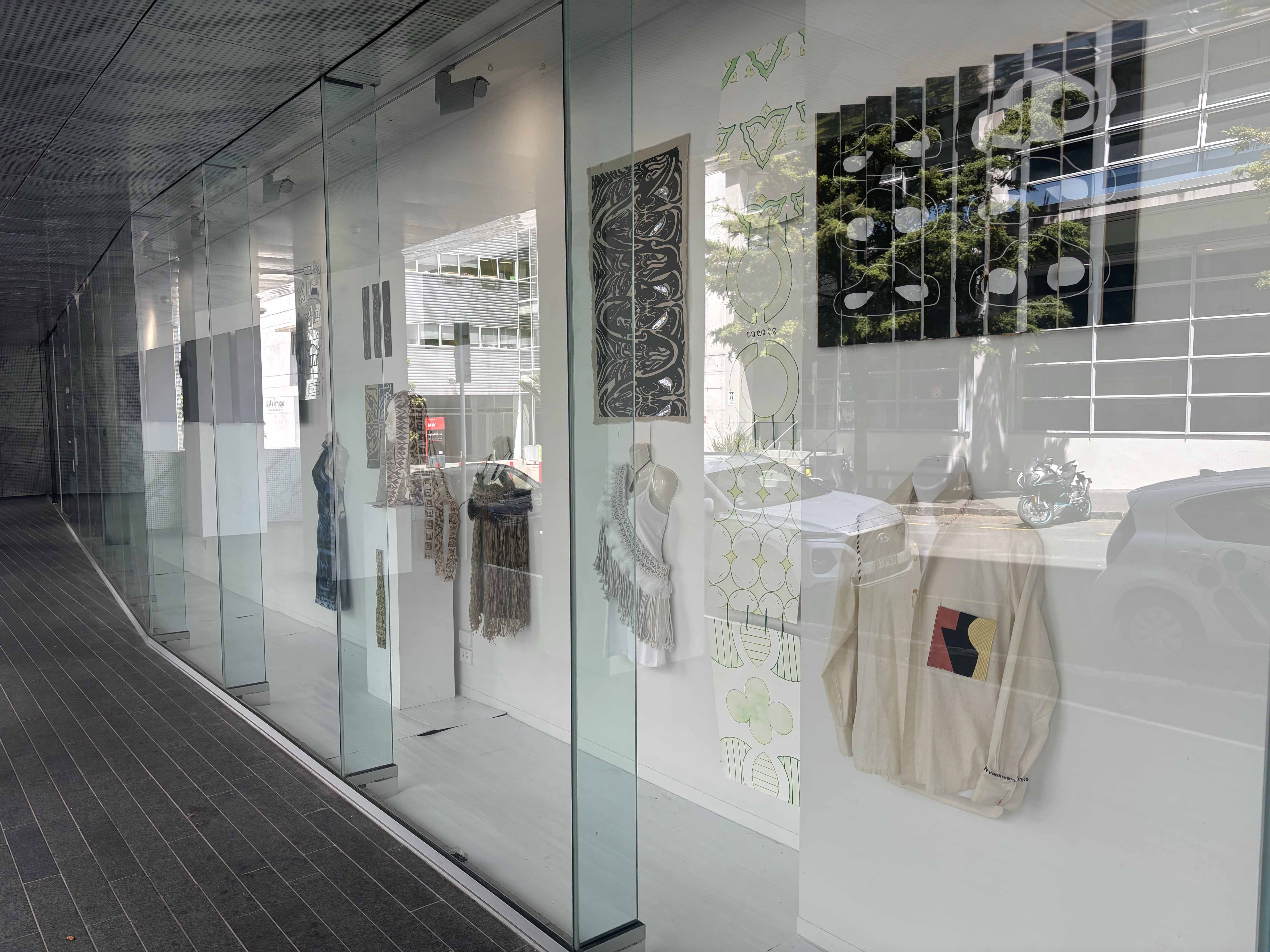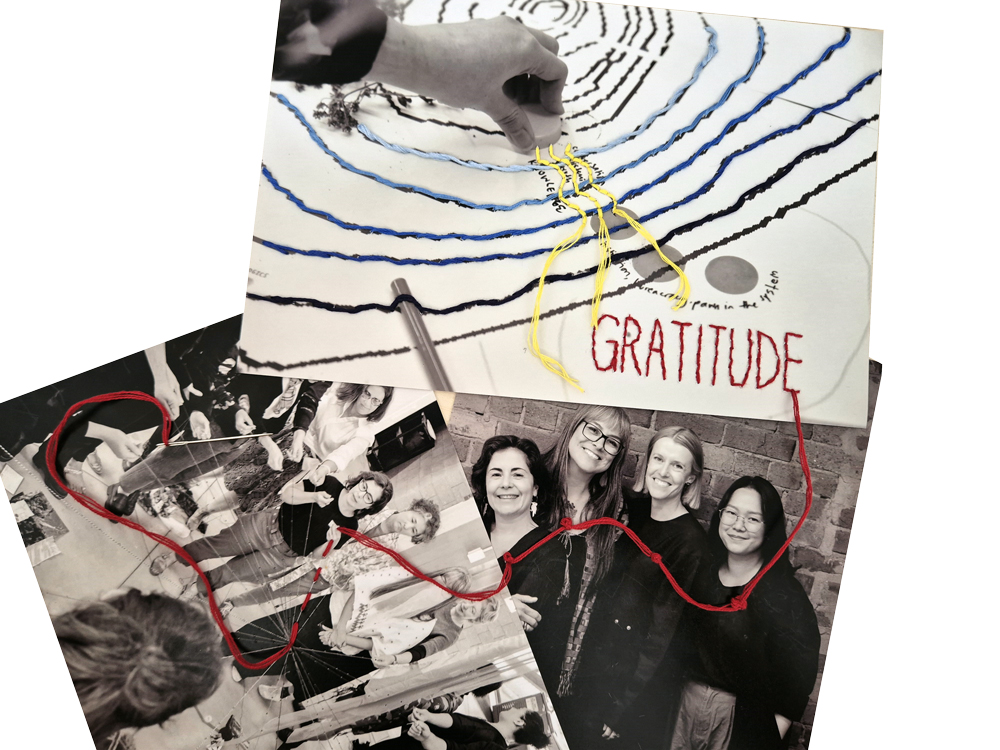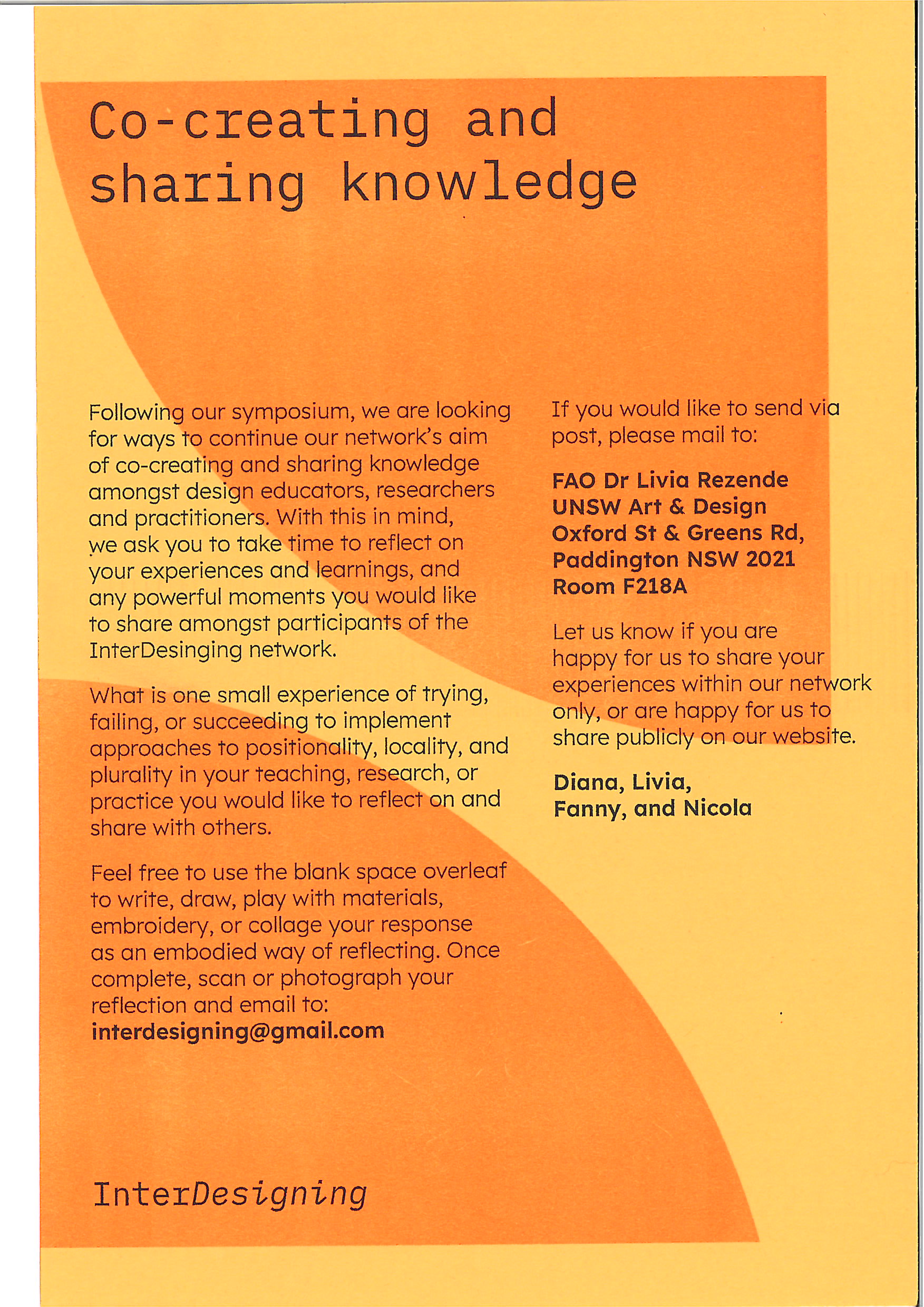Upcoming Events
Co-creating
and sharing knowledge
May 2025
Following our symposium, we are looking for ways to continue our network’s aim of co-creating and sharing knowledge amongst design educators, researchers and practitioners. With this in mind, we ask you to take time to reflect on your experiences and learnings, and any powerful moments you would like to share amongst participants of the InterDesinging network.
What is one small experience of trying, failing, or succeeding to implement approaches to positionality, locality, and plurality in your teaching, research, or practice you would like to reflect on and share with others.
Feel free to write, draw, play with materials, embroidery, or collage your response as an embodied way of reflecting. We have included some examples as inspiration - see below
Once complete, scan or photograph your reflection and email to: interdesigning@gmail.com
If you would like to send via post, please mail to:
FAO Dr Livia Rezende
UNSW Art & Design
Oxford St & Greens Rd, Paddington NSW 2021
Room F218A
Let us know if you are happy for us to share your experiences within our network only, or are happy for us to share publicly on our website.
Inspiration
Cecelia Faumuina



One experience I had last year when trying to implement approaches to positionality, locality, and plurality in my teaching was during my teaching of a Minor Paper at our School called "Contemporary Pacific Pattern Systems."
We drew from an Indigenous Oceanic Practice of Tapa Cloth Making to inform how we would collate our works together to exhibit as a collective, however, in the end although all students were familiar with Tapa Cloth, they were from a mix of ethnic Oceanic / Pacific backgrounds - being Māori or Pacific Students of mixed heritage whom had been born and raised in Aotearoa. After in class discussions, we decided that the concept of Su'ifeifiloi might be more appropriate for us as they are young people growing up in such a multi-dimensional world where we not only draw from our cultural upbringing but also the wide world around us. Lopesi (2021), describes it as "the Samoan practice of sewing different parts together which offers a culturally grounded research methodology for transdisciplinary theorising.
In the end we exhibited the work using the concept of Ula Lole (Garlands made of Various Lollies/Sweets). In many Oceanic cultures Garlands are offered as gifts to others and they are traditionally made using fragrant flowers but in diaspora, many Oceanic people use lollies instead as they are more accessible.
The final collective exhibition was called: Su'ifeifiloi - Polyvocality in Moana Nui A Kiwa. The students were to portray a concept or narrative using contemporary pattern designs."
Diana Albarran Gonzalez

Working on this report helped me to reflect back on our shared lived experiences during our first InterDesigning symposium. Looking at the pictures filled me with a deep sense of gratitude for everyone involved, co-founders, speakers, workshop facilitators, attendees, conversations, moments, safe spaces and creative work. This inspired me to pause and honour our time together connecting our hands, minds, bodies and hearts; weaving the threads of gratitude…
Past Events
28–29 November
2023
InterDesigning
SymposiumCo-creating the Praxis of Teaching Decolonial, Intersectional and Pluriversal Design and Histories. You are warmly invited to join the InterDesigning symposium that will bring together design scholars, educators, and practitioners across Oceania to explore and co-create more diverse ways of teaching and designing within tertiary institutions.
Watch the Symposium recording:
2 November 2023
ACUADS Conference
The InterDesigning network will be presenting at the Thriving Futures 2023 ACUADS conference. Our presentation ‘Wellbeing in dialogue: How to innovate design teaching through positionality, intersectionality and pluriversal approaches’ centres key praxes in design education that have the potential to increase students’ sense of belonging while improving staff confidence and ability to teach from and including diverse perspectives. Through these praxes, we aim to contribute to Design staff and student wellbeing and support the discipline in fulfilling its societal role of foregrounding culture, care, and community.
24-28 June 2024
DRS Conference
The workshop aims to serve as a collective embodiment of interactions and identification of common patterns and to co-create woven connections of experiences, past and present reflections, and future aspirations towards pluriversal design education. Through a live-embodied experience, this workshop has different intentions. We want participants to experience: a) how our hands and bodies, through craft-making and spatial exploration can contribute to an embodied sense-making of concepts, b) how craft-making can be used as a ‘soft’ entry point to discuss ‘sensitive’ topics such as power and privilege and as an outlet to express related emotions, and c) as a symbolic and embodied move from emotions to action, using our agency as individuals and as a collective to contribute to change.


